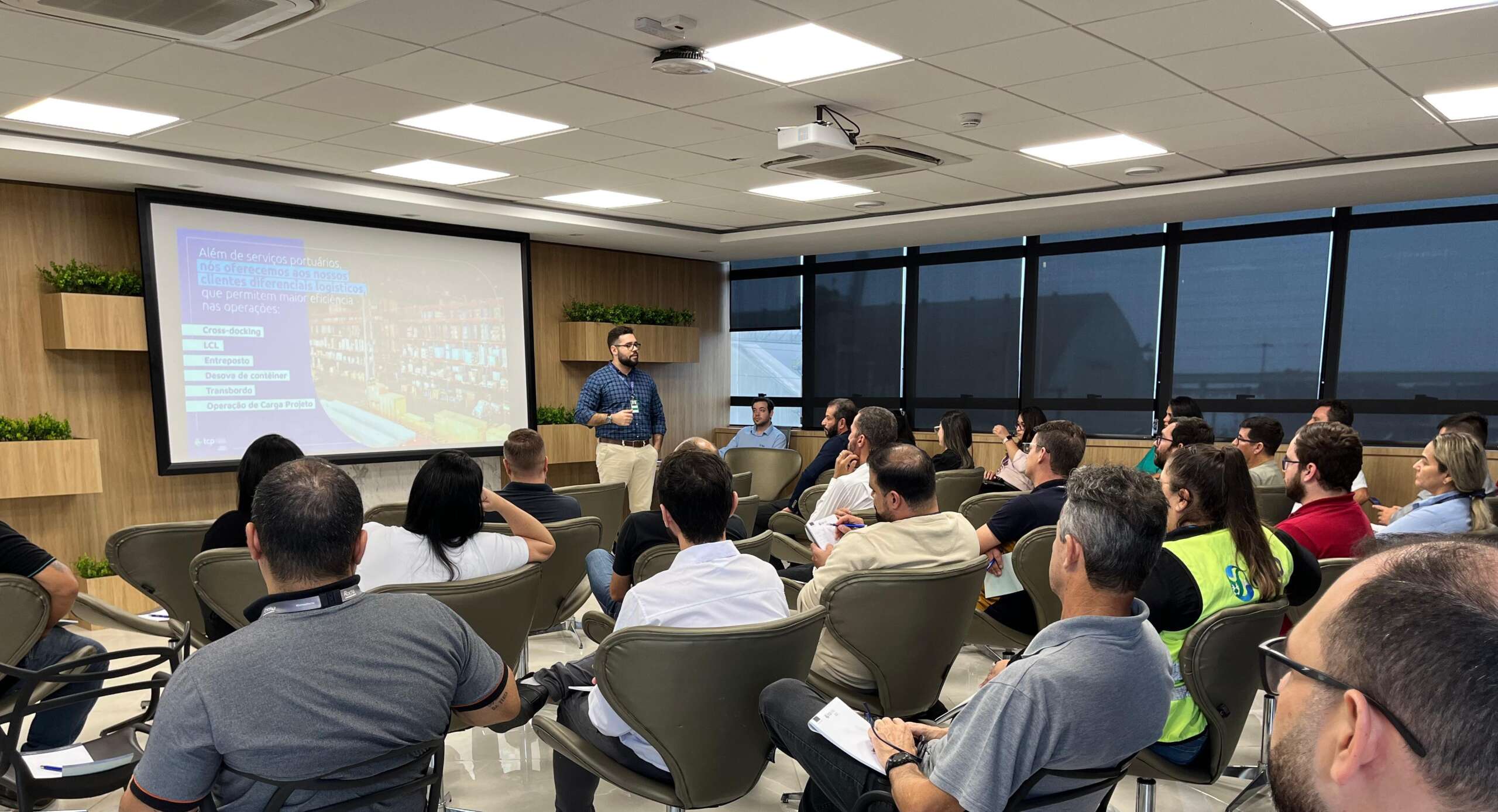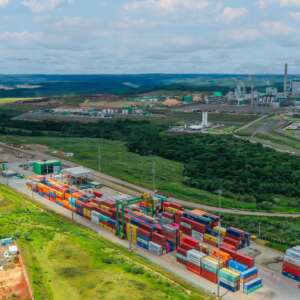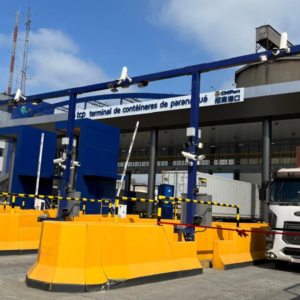The event was attended by representatives of the Union of Customs Brokers of the States of Paraná and Santa Catarina, companies in the sector and leaders of the Terminal
On Thursday afternoon (25), the company that manages the Paranaguá Container Terminal, TCP, hosted a seminar in honor of Customs Broker Day and brought together leaders from the Terminal’s commercial, regulatory, service, IT, logistics operations and billing areas to discuss improvements in various processes for the segment’s clients. Representatives from 12 companies in the sector were present, bringing proposals and contributions to the discussions.
“Commercial proximity with freight forwarders and a focus on specialized service for these clients are essential and priority items at our Terminal. That’s why this seminar is strategic so that we can continue to build solutions that bring greater efficiency to the processes carried out by all the players involved in foreign trade,” said Giovanni Guidolim, TCP’s commercial, logistics and service manager.
Among those present was the president of the Customs Brokers Union of the States of Paraná and Santa Catarina, Flavio Demetrio da Silva, who highlighted the importance of TCP’s initiative. “It’s important to foster dialog between the Terminal and customs brokers, as these professionals help identify challenges and propose improvements to the Terminal’s daily operations. Offering the service of destroying wooden packaging, for example, was a demand that our board brought up at previous meetings and today we have this advantage available here in Paranaguá.”
Since the last seminar held by the Terminal with freight forwarders, in October 2023, new improvements have already been implemented, such as offering the service of destroying condemned wood packaging, a process that can reduce the process of releasing imported cargo from an average of 15 to up to 4 days; and the automatic generation of shipping orders for full export cargo. Other advances are already being tested, with the aim of optimizing and improving the terminal’s service to all users, such as the automatic sending of container damage notifications.
The implementation of these new measures helps the Terminal’s import and export flow. “With the investments made in infrastructure and new equipment over the last year, added to the improvements made to better serve the market, we have managed to have greater flexibility in operational service – a necessary item for adapting to the current national logistics scenario – as well as the availability to implement solutions with the aim of providing greater agility and reliability to the market,” adds Guidolim.



